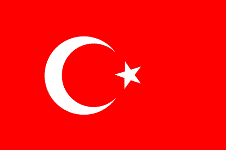 Sixteen dignitaries from Turkey, including members of the Turkish Parliament, representatives from the Ministry of Justice, and professors, spent March 1 at Marquette Law School (MULS) to learn about Wisconsin’s experiences with restorative justice and mediation. The law school’s Restorative Justice Initiative organized a meeting with them and Wisconsin Supreme Court Chief Justice Shirley Abrahamson, Wisconsin Supreme Court Justice Ann Walsh Bradley, retired Wisconsin Court of Appeals and Barron County Circuit Court Judge Edward Brunner, Milwaukee County Chief Judge Jeffrey Kremers, Milwaukee County Circuit Court Judge Mary Triggiano, United States Attorney for the Eastern District of Wisconsin James Santelle, and Milwaukee County District Attorney John Chisholm, along with other prosecutors and Wisconsin restorative justice professionals. Professor and restorative justice scholar Mark Umbreit, from the University of Minnesota Center on Restorative Justice and Peacemaking, as well as MULS Professors Andrea Schneider and Michael O’Hear, also attended the meeting. The Turkish delegation is working with the United Nations’ Development Program on judicial reforms and traveled to the United States for a week-long visit to learn about the use of mediation and restorative justice in our American court system. The group had meetings in Washington D.C. and New York and then came to Marquette University for one day. The Turkish Parliament has already incorporated Victim-Offender Dialogues into the Turkish criminal code and is working on drafting mediation legislation and part of the civil justice system. I will be traveling to Istanbul later this week to be part of a workshop on restorative justice for judges and prosecutors in Turkey.
Sixteen dignitaries from Turkey, including members of the Turkish Parliament, representatives from the Ministry of Justice, and professors, spent March 1 at Marquette Law School (MULS) to learn about Wisconsin’s experiences with restorative justice and mediation. The law school’s Restorative Justice Initiative organized a meeting with them and Wisconsin Supreme Court Chief Justice Shirley Abrahamson, Wisconsin Supreme Court Justice Ann Walsh Bradley, retired Wisconsin Court of Appeals and Barron County Circuit Court Judge Edward Brunner, Milwaukee County Chief Judge Jeffrey Kremers, Milwaukee County Circuit Court Judge Mary Triggiano, United States Attorney for the Eastern District of Wisconsin James Santelle, and Milwaukee County District Attorney John Chisholm, along with other prosecutors and Wisconsin restorative justice professionals. Professor and restorative justice scholar Mark Umbreit, from the University of Minnesota Center on Restorative Justice and Peacemaking, as well as MULS Professors Andrea Schneider and Michael O’Hear, also attended the meeting. The Turkish delegation is working with the United Nations’ Development Program on judicial reforms and traveled to the United States for a week-long visit to learn about the use of mediation and restorative justice in our American court system. The group had meetings in Washington D.C. and New York and then came to Marquette University for one day. The Turkish Parliament has already incorporated Victim-Offender Dialogues into the Turkish criminal code and is working on drafting mediation legislation and part of the civil justice system. I will be traveling to Istanbul later this week to be part of a workshop on restorative justice for judges and prosecutors in Turkey.
All forty of us professionals, along with a group of my law students, met for our discussions in the MULS Conference Center. Our visitors were incredibly impressed with our wonderful new law school building and programs. Dean Joseph Kearney gave everyone a warm welcome thanking our visitors for “bringing the world to Marquette Law School.”
All of us learned a great deal from each other during the questions and answers (including those of us from Wisconsin hearing what others are doing in our own state.) We were fortunate that we had two high-level interpreters to guide us through fairly technical discussions on statistics, processes and success rates. The representatives from Turkey were interested how these processes reduced judicial case loads and if that is the reason our civil system utilizes mediation as much as it does. It became obvious that we could not answer with any certainty the statistical success rate of court-ordered mediation in Wisconsin. From experience, we know that mediation works but we do not have independent studies that have analyzed Wisconsin numbers. The Chief Justice thanked them for showing us on how we need to better gather those numbers.
The Turkish Parliament members were also very interested in our Wisconsin Circuit Court Access (CCAP) system which provides the public internet access to all criminal and civil case information. Although impressed with the system, they rightfully questioned whether that permanent access was not inconsistent with our often stated objective of rehabilitation for offenders who have completed their sentences. John Chisholm described the public’s interest in balancing public access to information, public safety and rehabilitation interests.
The head of the Turkish delegation thanked the law school for gathering such an impressive array of knowledgeable professionals who were able to share such substantial information with them. We also thanked our visitors from Turkey who honored us by their visit and their observations. We made clear to them that we remain willing to continue to assist them in anyway they would like and that we also appreciate the opportunity to learn from them as they design new dispute resolution systems for their judicial branch.
